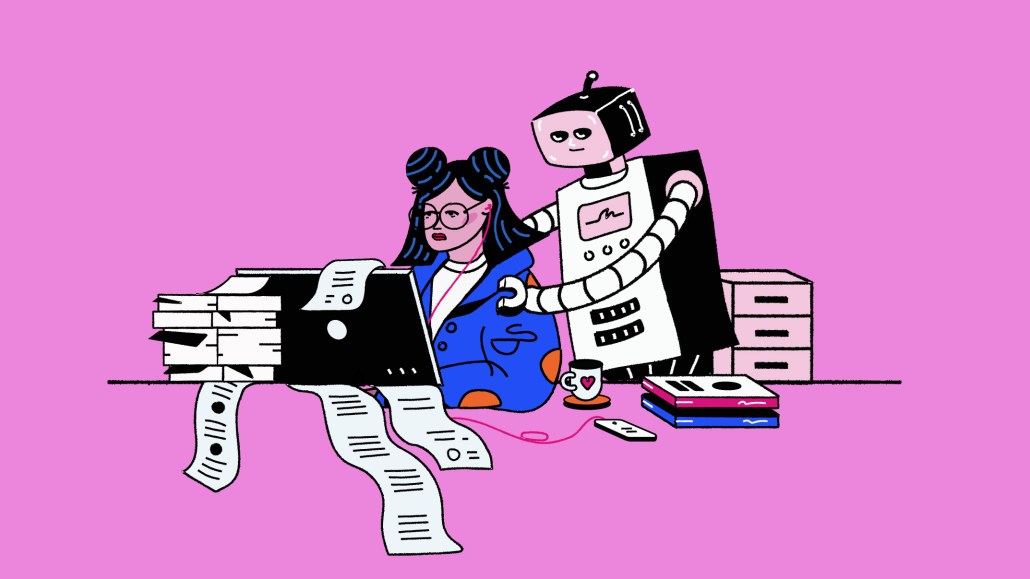Secure your place at the Digiday Media Buying Summit in Nashville, March 2-4

The story was first published by Digiday sibling WorkLIfe
This article is part of WorkLife’s special edition, which examines how the jobs and careers of Generation Z professionals will be reshaped and evolve in the AI-informed era. More from the series →
Relationships between a mentor and mentee are among the most important one can have in a career. Mentors answer questions from mentees, help them build skills, provide networking opportunities and can guide career development. Now, a lot of the guidance and value mentors provide are slowly being replicated by AI tools.
Exactly how AI is being used for mentorship varies wildly. Among the more common use cases are predictive AI tools that match mentors and mentees within organizations, which traditionally has been a bit of a hassle for companies to accomplish.
Both predictive and generative AI are also being used to help workers get questions about their jobs answered from sources both within and outside of their organizations, and helping them learn new skills. In time, experts predict, AI will improve how it mimics human mentorship, and potentially do an even better job by making those relationships more accessible and personalized.
“Democratizing mentorship — but I’d say just democratizing development for people — that is one of the greatest areas of opportunity that I see for AI in general,” said Erin Clark, principal in corporate and business unit strategy at Deloitte U.S.
Traditional mentorship opportunities all but fell to the wayside during the pandemic and rise of remote work, as businesses grappled with the new working reality. But just like those before them, younger workers, particularly those in Generation Z, crave guidance early in their careers. That, plus the numerous reports showing that this generation in particular has heightened anxiety – part of which stems from joining the workforce during the pandemic – makes it even more critical that mentorship be a central component of their development.
Mentor matching
Chronus is a predictive AI platform that helps companies scale their own mentorship programs by matching mentors and mentees within their organizations.

It matches people based on preferences, skills, past experience, scheduling and other factors to find the best fit. It collects data on how mentors and mentees answer questions in their own profiles and tracks progress and outcomes when they are matched to determine what’s working best and how to improve.
“There are certain groups that will pound down the doors to get mentorship, and if you let it happen itself, very often it’s people from traditionally disadvantaged groups that don’t get included in that process.”
“There are certain groups that will pound down the doors to get mentorship, and if you let it happen itself, very often it’s people from traditionally disadvantaged groups that don’t get included in that process,” said Chronus CEO David Satterwhite. “We want it to be a systematic process so that you’re leveraging mentorship across the company at any size in a very inclusive way,” he added.
To read the full story click here
More in Media

Digiday+ Research: Dow Jones, Business Insider and other publishers on AI-driven search
This report explores how publishers are navigating search as AI reshapes how people access information and how publishers monetize content.

In Graphic Detail: AI licensing deals, protection measures aren’t slowing web scraping
AI bots are increasingly mining publisher content, with new data showing publishers are losing the traffic battle even as demand grows.

In Graphic Detail: The scale of the challenge facing publishers, politicians eager to damage Google’s adland dominance
Last year was a blowout ad revenue year for Google, despite challenges from several quarters.








